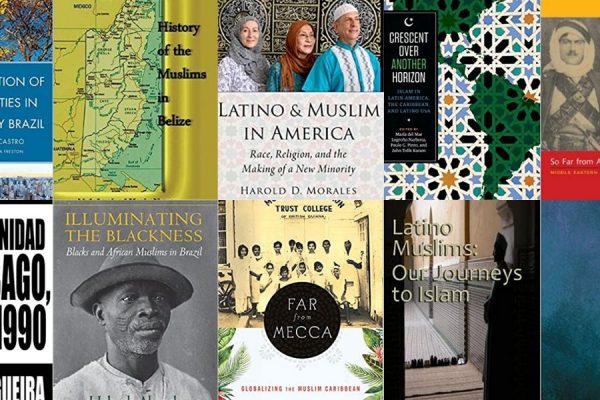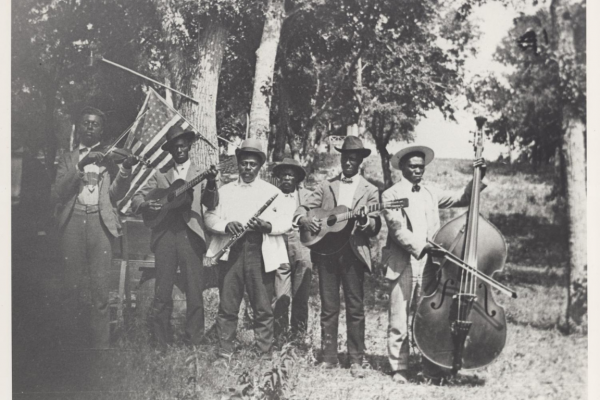If you have been following American news concerning the Muslim community, you could probably tell that Muslim Americans have a strong affinity towards Left-wing causes and politicians. A 2017 Pew Poll showed that 66% of Muslim Americans prefer the Democratic party, compared to 13% who prefer the Republican Party and 20% who are independents or do not favor either. Given Muslim Americans’ economic interests as entrepreneurs and their natural desire to conserve their culture, the statistics may seem perplexing.
Muslims before Bush slightly leaned Democrat, but the partisanship disparity was not nearly as significant. We find that the tragic 9/11 attacks and the anti-Muslim bigotry that ensued catalyzed a shifting point in Muslim American politics, causing mass conversions to the Democratic Party. But should Muslim Americans attach themselves to the Democrats, or any party for that matter, after Republican anti-Muslim bigotry?
Why The Republican Party was Appealing to Muslims
In the 2000 election, a significant majority of Muslims were supportive of George W. Bush. To Muslims, he likely represented the old American conservative values (nonexistent in politics today) of lower taxes, freer markets, increased immigration, and the protection of entrepreneurial pursuits and “family values.” Combine the above with the fact that Al Gore was regarded as a stooge for Israel, and it becomes incredibly rational for Muslims to vote for Bush and rally for his support. Muslim Americans have the highest rates of entrepreneurship in the country, so economic regulations and bureaucratic red tape championed by the Left would not be favorable.
Moreover, Republicans also appeared like allies due to similar moral values inspired by the Abrahamic tradition: religiosity, family-centrism, community-centrism, and repulsion towards rapid social changes. Muslims, at least back then, held these Abrahamic values dearly. So, historic Muslim sympathy with conservatism should not be surprising.
What changed after 9/11?
Muslim American political demographics changed a lot after 9/11. Republicans advocated more loudly for war and were more diligent on continuing the war after it was initiated. Unfortunately, the wars were happening in Muslim majority countries. Muslim Americans, being the least religious group likely to justify killing civilians under any circumstance, felt betrayed by the politics of the party they voted for. So, the association of the Republican party with warmongering (which is justified given several U.S. aggressions in South America) became deeply carved in the Muslim mind. In addition, increased unconstitutional surveillance of Muslim communities was endorsed primarily by Republicans.
The shift after 9/11 radically changed Muslim American perceptions of domestic politics. It created a deep distrust and resentment towards the Republican party whose partisans did not cease to vilify Muslims and Islam. As a result of Muslim disappointment, the Democrats presented themselves as the more tolerant party. Doing so, they secured more and more Muslim votes.
Nonetheless, Muslim sympathy with the Left was sustained afterwards due to reasons other than war: Republicans became more supportive of Israel, even in the face of international human rights violations. Comparatively, Democrats became far less supportive with only 27% sympathizing with Israel in 2018. While Republicans permitted many displays of rabid anti-Muslim bigotry, Democrats maintained an ostensibly tolerant and minority-friendly platform that considered Muslim concerns. No rational person would continue voting for a party which ran on their demonization domestically and the murder of their coreligionists internationally.
Feeling alienated and marginalized, Muslims sought acceptance. And the Democratic party were selling it. Left-leaning people were relatively kind and understanding of Muslims. Democratic politicians grieved with Muslims during tragedies and congratulated them on their holidays, making the insecure Muslims feel more at home. It felt great.
The Problem with Alliances with the Left
It is abundantly clear that Democrats are good allies to Muslims on some issues. Collaboration is commendable when it is mutually beneficial and fits our ethical framework. Left-leaning people are slowly adopting genuine anti-war sentiments. They have also grown more supportive of immigrant rights and advocate humane policies like open borders. However, it is dangerous for Muslims to wed themselves to the Democratic party, as most of their support is mere lip-service.
Obama, a president who was generally appreciated by the Muslim American community, did not speak ill about undocumented immigrants. However, he factually deported far more undocumented immigrants than Trump has. Also, Democrats claim to oppose warfare and military expansion. However, as Obama has proven, Democratic politicians do not mind engaging in regime change which is frequently just as destructive and cruel as military warfare.
Attaching a movement, community, or cause to a political party can be a disaster. One of the best examples of that is with the peace movement and the Democrats. Dr. Fabio Rojas from Indiana University conducted excellent research regarding movements with strong party affiliations. He found that from 2003 to early 2010, the peace movement became firmly attached to the Democratic party. His study concluded that if you are too close to a party and the party wins power, partisans leave the movement and shift to other issues. Though it makes sense to collaborate with Democrats on interests that coincide with ours, it is incredibly important not to attach the Muslim community’s interests with any party.
A Potential Solution
The famous American abolitionist and author, Fredrick Douglass, once said: “I would unite with anybody to do right, and with nobody to do wrong.”
Given the constant change in political waves, collaboration with different parties when possible is desirable. The cause of justice to all, within the Islamic framework, must not be confined to a single party. We simply have too many non-ideological causes to constrain ourselves to a single party. Our many causes include:
- Supporting criminal justice reform, as our current justice system evidently discriminates against African Americans and excessively punishes many victimless crimes.
- Supporting policies and politicians that are working to end wars and restrain the Military Industrial Complex.
- Ending unjust sanctions that impoverish and starve families in developing nations.
- Encouraging and cultivating a culture of family-centrism and protesting policies that facilitate and cause the dissolution of the nuclear family.
- Demanding an end to all inhumane policies separating families of undocumented immigrants and deporting them.
- Removing government regulations that hurt the poor.
Due to ideology and special interests, no party or politician is willing to address all these issues appropriately. However, we want justice and well-being for all, beyond Left and Right party lines. We take inspiration from the Blessed Tree in Surat Al-Nur, whose defining character is that it is neither in the east nor in the west.
Non-Muslim Republicans, Democrats, Libertarians, and others should recognize Muslims as potential allies on several issues and collaborate with them. They must also be expected to purge the anti-Muslim bigotry that doesn’t benefit anyone but harms many.
Muslim Americans, on the other hand, should realize that Islam is beyond party lines and that we must not attach ourselves to the Left too tightly. We can never tell the future, but someday, the Left may abandon our causes that they seem to champion today (like they already have many times before). Or, the Left may embrace us for our social identity but ask us to abandon the beyond-partisan Islamic ethical framework we use. At the end of the day, our comprehensive ethical framework is the most precious thing we have, and its obliteration makes all the efforts for security and acceptance unworthy. If we are accepted as “Muslims” but must give up foundational Islamic principles, then maybe we’re missing the point.





